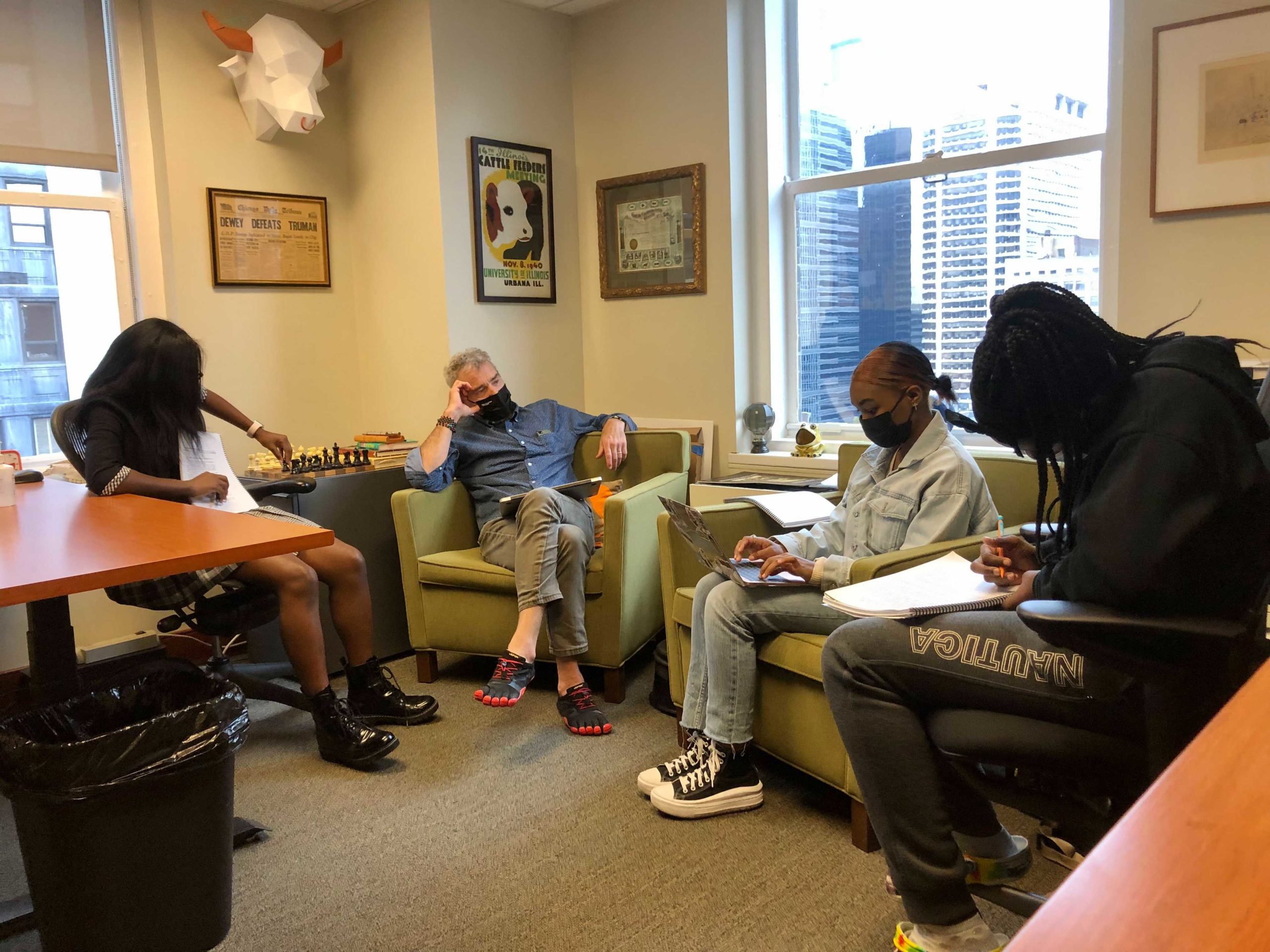
Behind the scenes ? Students had to interview an adult about their religious beliefs for Revolutions & Citizenship. They also had questions about Mike’s shoes.
Revolution School Community,
It has been some time since I last wrote to you. One of the few silver linings from the pandemic is that I got to read, write and reflect more often. The first few weeks of a school year doesn’t exactly provide ripe conditions for reflective narrative. The summer months at Revolution saw us add a basecamp at 230 S. Broad Street to better actualize our mission and vision of activating the city of Philadelphia as a dynamic learning lab.The first few weeks of school taught us how to begin to live in our space. We traveled to local parks for Health/Wellness and PE class, Eastern State Penitentiary to better understand the prison system, and Magic Garden for our ongoing study of Philly’s dense development and growth from east to west. It’s clear that the “p” for place based in our model has been activated by our new basecamp and much of what we anticipated about the location has been affirmed. The best way to truly “break down the walls between learning and life” is to get proximate to much of what our great city has to offer.
Some have heard me heap praise on Bryan Stevenson’s conclusion about the power of proximity. He explains that “if you are willing to get closer to people who are suffering, you will find the power to change the world.” I think about proximity often in the context of Revolution School not related to suffering, but in the simple fact that proximity enhances our vision for building community. An example of this can be found by observing when students from UPenn’s Positive Psychology lab worked alongside Revolution School students, when Board members show up as observers for end of year presentations, when Michael Butler from Technical.ly shares his story, or in the admissions process through a “living room visit” in an effort to meet each other at a comfortable or neutral space.
At its core, proximity teaches diversity and empathy. Back in my coaching days, I implemented an annual “dinner date” for each member of the basketball program to attend a planned dinner at the home of a teammate, coach, or manager regardless of rank. This meant the starting point guard attended dinner with the manager on the JV team and vice versa. My theory was that if we could see where our teammates were coming from, we’d better be able to appreciate the diversity in our group leading to an understanding of our differences and ultimately trust among our team. Another intended consequence of these “dates” had something to do with how we might function when adversity struck during competition, but the larger lesson was about proximity.
In one instance, a player/family opted out of half of our preseason “dinner date” routine citing safety concerns for their son traveling to a home in North Philly. Instead they welcomed the other player to come to dinner at their home. This implied that it was somehow “safer” for the player from north Philly to travel to Gladwyne. Despite my numerous pleas, the Gladwyne family was adamant that their son would not go to North Philly. I asked if they had contemplated the safety of a black boy traveling on public transportation from their neck of the woods after dark as they considered their child’s own safety. Did they know if the North Philly student could ask mom for a ride or why dad would never be able to pick up his son? They didn’t. I was saddened at the idea that so many of the lessons we hoped to impart through “dinner date” would never land. I viewed their resistance to fully participate as a way to mute experiences and conversations that might evolve their thinking. As an independent school student who was often invited to such one-sided affairs, I was personally offended. Ironically, this was a family who promised to partner with the school in the educational process, but in these uncomfortable moments we learned that partnership was a loose and capricious arrangement. I learned a hard life lesson that preseason. The idea of getting proximate isn’t an option for some and for others like the Gladwyne family, it is rejected entirely. If we’re unwilling to get closer to the things which force us out of our comfort zones, how do we grow to make positive change in the world?

Henry

RVLTN School Community Gathering Canceled
Instead, we will hope to hold parent conferences in person on October 29. Stay tuned for details!
Reminder: No School Monday and Tuesday
School is closed for indigenous people’s day on Monday and a professional day on Tuesday. We look forward to seeing everyone back on Wednesday. Enjoy the long weekend!
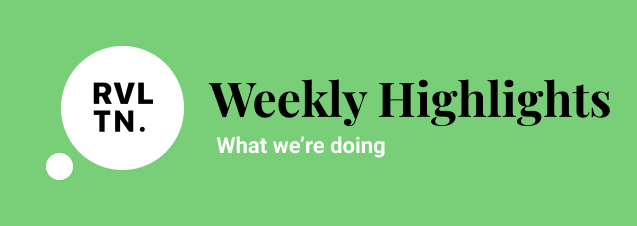
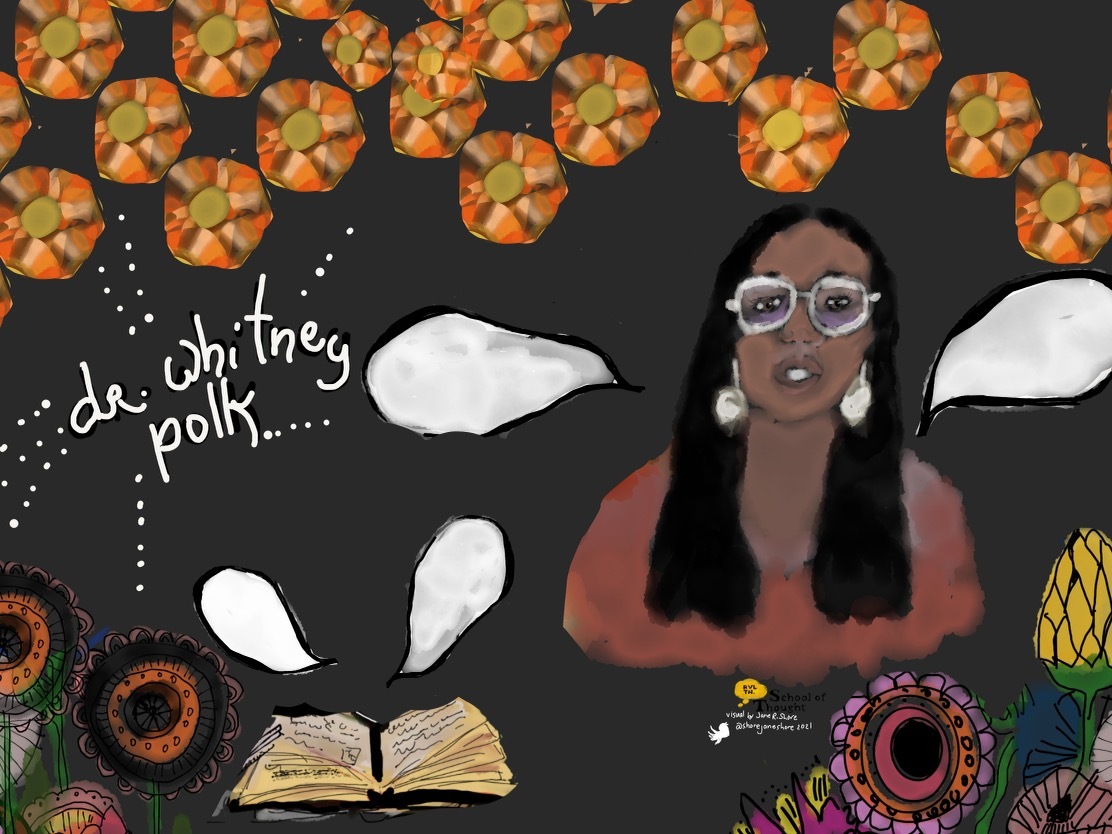
Whitney Polk, a UPenn post doctoral student working with Howard Stevenson on topics such as racial stress, racial literacy and critical pedagogy, met with Staff this week to gather questions, ideas and programming inspiration. Through support from a grant from the National Science Foundation, Dr. Polk will be working with Revolution staffulty to dig into our anti racism curriculum, uncover teaching and learning and culture building questions and learn with and from each other.
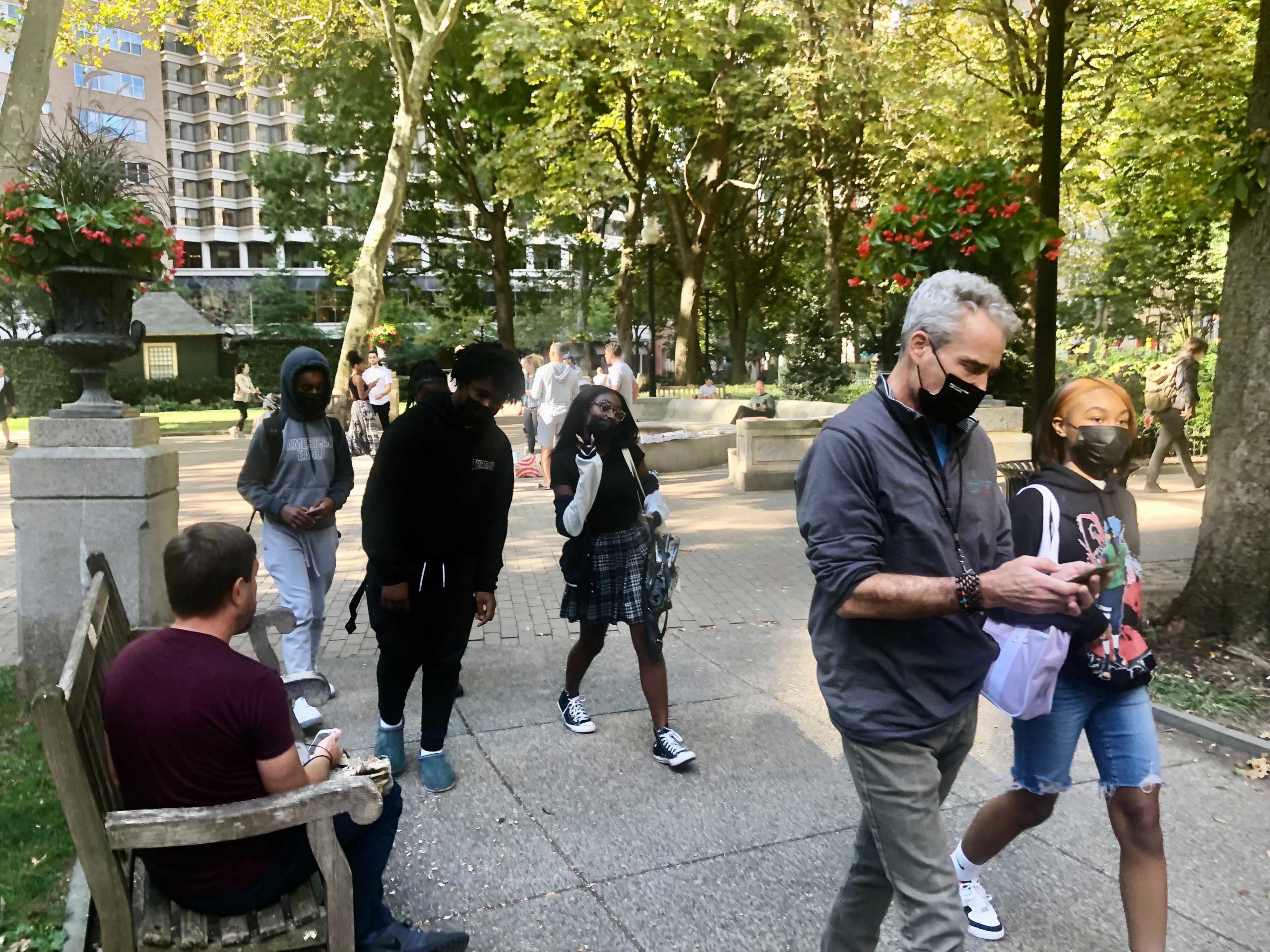
During last week’s field experience, students explored our neighborhood. Rittenhouse park was a favorite spot!
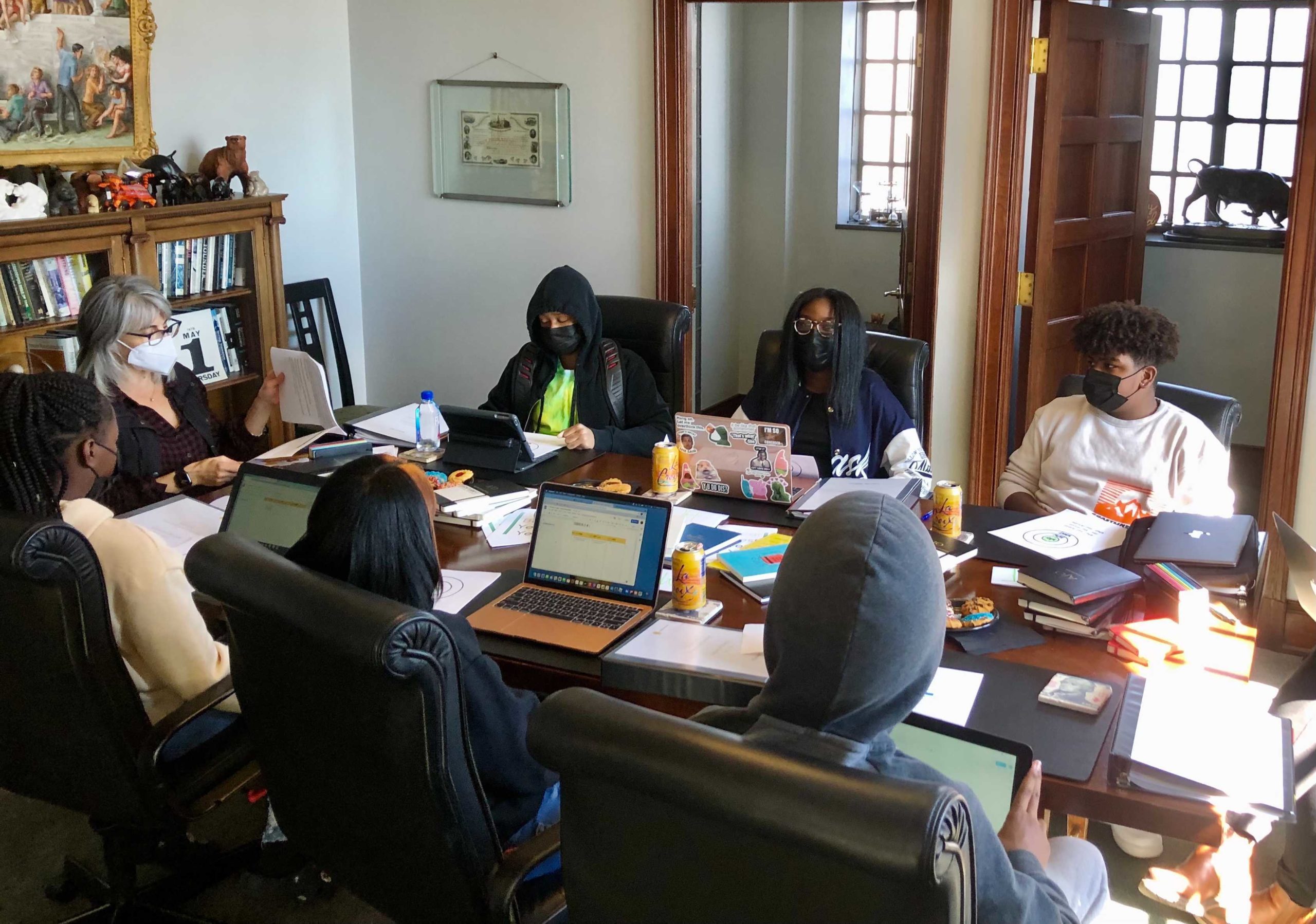
Gina shared her passion for journaling with 9th and 10th graders who are exploring communication and creativity in School of Thought seminar.
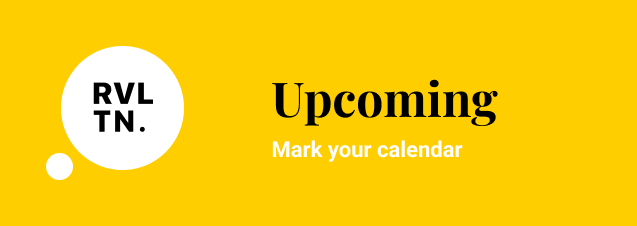
School Closed – Indigenous People’s Day
Monday, October 11
School Closed – PD Day for Staffulty
Tuesday, October 12
Parent Conferences
Friday, October 29
November Parent Hour
Monday November 1, 7:00 – 8:00 PM,
Join the ZOOM Room: https://us02web.zoom.us/j/81940994911
Meeting ID: 819 4099 4911 Passcode: 967526